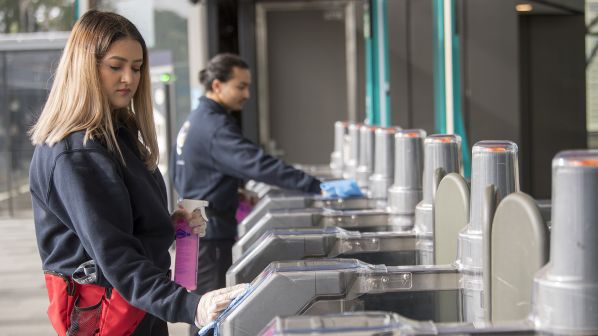DISRUPTION across the travel industry due to Covid-19 has caused unparalleled uncertainty and flux. While passenger loadings remain low, the desire and ambition to travel remains. To restore confidence, operators and ticket distributors must make an extensive range of offers available for business and leisure passengers, which consider safety and preference.
With 76% of global passengers saying they will keep travelling by rail after the pandemic, it’s fitting that 2021 is the European Year of Rail. The year is likely to see operators embrace new ways to promote rail as a more sustainable way to travel. And as the availability of international rail services increases in some parts of Europe over the coming years, it’s important to consider how operators and ticket distributors should adapt to changing and, potentially, greater demand.
We recently partnered with German Rail (DB) to enable passengers to book their journeys across multiple countries and operators. The platform presents offers from different distribution systems and inventories at the station, providing passengers with a complete picture of the journey on offer.
Innovations like this help us to look to the future and start to pinpoint the new travel landscape. As demand for rail services recovers and presents new opportunities, it is imperative we investigate how specific tools can help get the world travelling again.
We believe that travel agencies have an opportunity to rethink their approach when enticing their customers to travel and offering passengers peace of mind should be central to any new distribution strategy. In a recent survey, 61% of people opting to travel by rail expressed that it’s very important they know up front that Covid-19 measures are in place before they book their trip.
New platforms provide the opportunity to proactively inform passengers of health and safety requirements. They can even offer cautious people alternatives to create the perfect journey. 12Go is one example of this, which enabling users to search and book European rail tickets in their own language and currency.
This new approach to international travel could position rail at the forefront of multimodal travel options by enabling international passengers to find rail routes and fares via a dedicated portal. However, to achieve this, consumers and intermediaries must be able to openly access travel information in a non-discriminatory manner.
Responding to passenger needs
With local and regional travel becoming a more attractive option in recent months in light of Covid restrictions, passengers are re-evaluating their travel options. Fortunately, new technological solutions provide travel agencies with the capability to respond to passenger needs and many of these new innovations have the potential to shape the future of rail services.
For example, our partnership with AERTiCKET allows customers to book rail tickets alongside flights and other travel offers, enabling operators to offer their customers a variety of personalised travel packages.
In addition, new digital ticketing in rail could operate like a pay-as-you-go package for your mobile phone. New technology could also unlock new, more efficient ways of travelling. In Britain, for example, the Rail Technical Strategy envisions seamless digital ticketing so passengers do not require a physical ticket check by another human or machines before boarding. This ensures a continuous flow of people, preventing bottlenecks which force people to come together.
Other innovations in discussion include dynamic timetabling, where trains operate when needed. We also expect to see more brands investing in automated services and robot implementation. Indeed, we’re already beginning to see some prototypes at stations which are supporting passengers with information or helping them navigate the station.
By using such applications, rail has an opportunity to tap into the underserved marketplace of “destination services,” such as connecting taxis, airport transfers and excursions, cultivating customer loyalty and revenue growth in today’s unique and ever-changing travel landscape.
While this year has shaken our industry to the core, it also presents new opportunities to rethink how we serve our passengers. We’re entering a world where technology allows us to place the passenger at the heart of the rail industry’s strategy for growth. That’s why despite this year’s setbacks, we can be optimistic about what the future of rail will bring.
About the author
Stalter joined Amadeus in 2016. He is responsible for the commercial activities with rail companies across the globe.
He has been a consultant for the last 15 years, developing new IT and consulting businesses with major customers in the travel and transport industry. His fields of expertise encompass IT, distribution and the digitalisation of the travel and transport sector with a strong focus on the railway sector.
Before joining Amadeus, Stalter worked for Capgemini in the Account Management for German Rail (DB). He is a German citizen based in Frankfurt.

